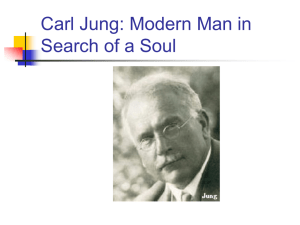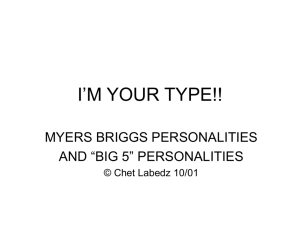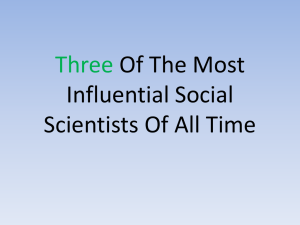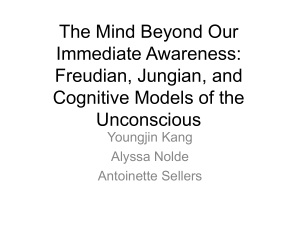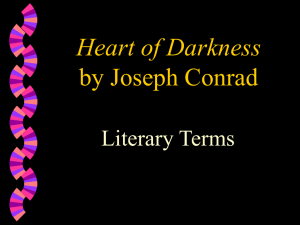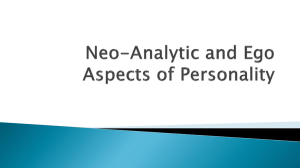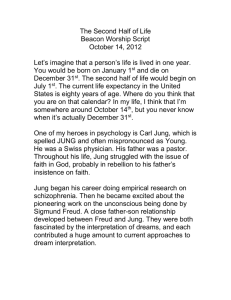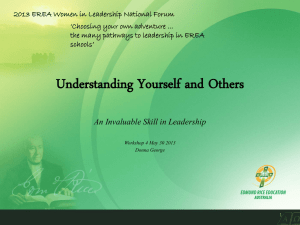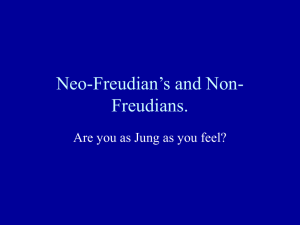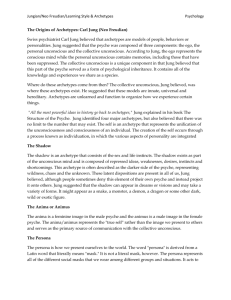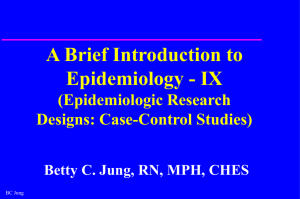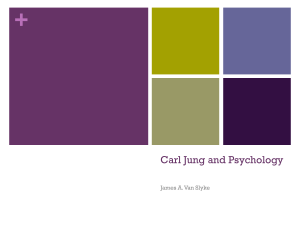College Reading Practice Carl Gustav Jung (26 July 1875 – 6 June
advertisement
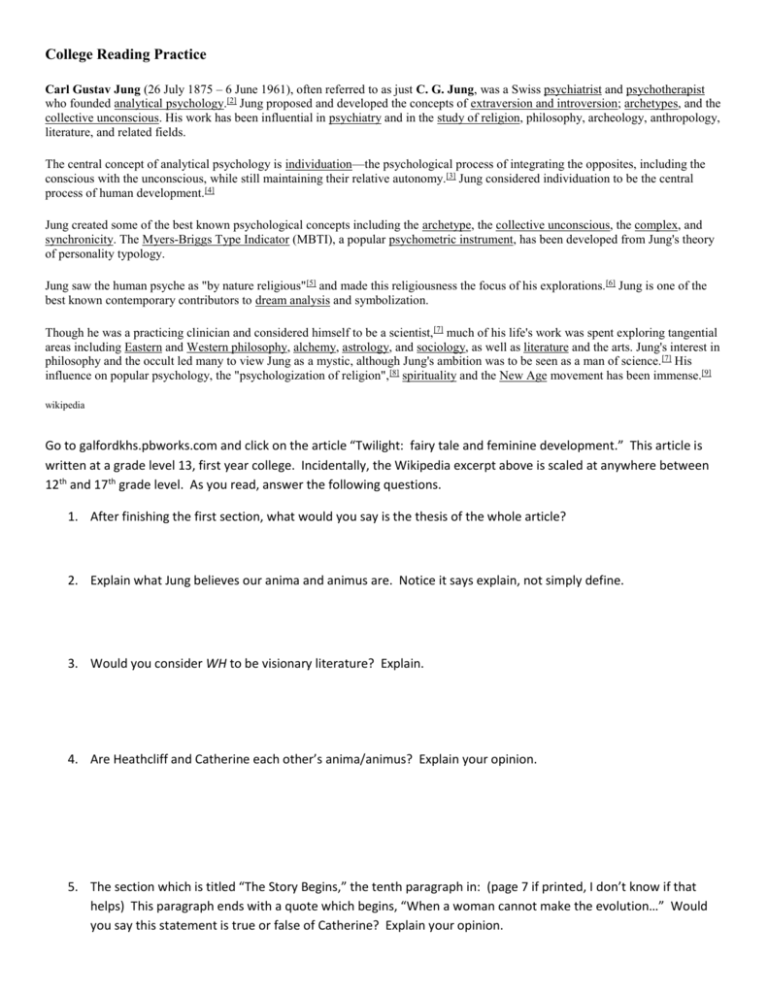
College Reading Practice Carl Gustav Jung (26 July 1875 – 6 June 1961), often referred to as just C. G. Jung, was a Swiss psychiatrist and psychotherapist who founded analytical psychology.[2] Jung proposed and developed the concepts of extraversion and introversion; archetypes, and the collective unconscious. His work has been influential in psychiatry and in the study of religion, philosophy, archeology, anthropology, literature, and related fields. The central concept of analytical psychology is individuation—the psychological process of integrating the opposites, including the conscious with the unconscious, while still maintaining their relative autonomy.[3] Jung considered individuation to be the central process of human development.[4] Jung created some of the best known psychological concepts including the archetype, the collective unconscious, the complex, and synchronicity. The Myers-Briggs Type Indicator (MBTI), a popular psychometric instrument, has been developed from Jung's theory of personality typology. Jung saw the human psyche as "by nature religious" [5] and made this religiousness the focus of his explorations. [6] Jung is one of the best known contemporary contributors to dream analysis and symbolization. Though he was a practicing clinician and considered himself to be a scientist, [7] much of his life's work was spent exploring tangential areas including Eastern and Western philosophy, alchemy, astrology, and sociology, as well as literature and the arts. Jung's interest in philosophy and the occult led many to view Jung as a mystic, although Jung's ambition was to be seen as a man of science. [7] His influence on popular psychology, the "psychologization of religion", [8] spirituality and the New Age movement has been immense.[9] wikipedia Go to galfordkhs.pbworks.com and click on the article “Twilight: fairy tale and feminine development.” This article is written at a grade level 13, first year college. Incidentally, the Wikipedia excerpt above is scaled at anywhere between 12th and 17th grade level. As you read, answer the following questions. 1. After finishing the first section, what would you say is the thesis of the whole article? 2. Explain what Jung believes our anima and animus are. Notice it says explain, not simply define. 3. Would you consider WH to be visionary literature? Explain. 4. Are Heathcliff and Catherine each other’s anima/animus? Explain your opinion. 5. The section which is titled “The Story Begins,” the tenth paragraph in: (page 7 if printed, I don’t know if that helps) This paragraph ends with a quote which begins, “When a woman cannot make the evolution…” Would you say this statement is true or false of Catherine? Explain your opinion. 6. The first paragraph in the “Enter Jacob” section deals with parental issues. Do you feel this describes Cathy? Explain your opinion. 7. The 8th paragraph in that same section: Does this describe marriage in WH? Elaborate 8. What is Catherine’s “shadow behavior”? 9. Does Cathy exhibit the “Great Mother archetype”? Elaborate. 10. If “Houses are persona-symbols;” how does that relate to WH? The next article is also on the PBWorks site and is much shorter. Find “Female Consciousness in Wuthering Heights” and answer these questions. This article is only a 10-11th grade level, but still listed as “fairly difficult to read.” Feminism is a collection of movements and ideologies aimed at defining, establishing, and defending equal political, economic, and social rights for women.[1][2] This includes seeking to establish equal opportunities for women in education and employment. A feminist advocates or supports the rights and equality of women. [3] Feminist theory, which emerged from these feminist movements, aims to understand the nature of gender inequality by examining women's social roles and lived experience; it has developed theories in a variety of disciplines in order to respond to issues such as the social construction of sex and gender. [4][5] 1. Is WH a feminist novel? Elaborate on your opinion. 2. Does Catherine suffer because of her desire for equality with her male counterparts or for other reasons? Explain.
